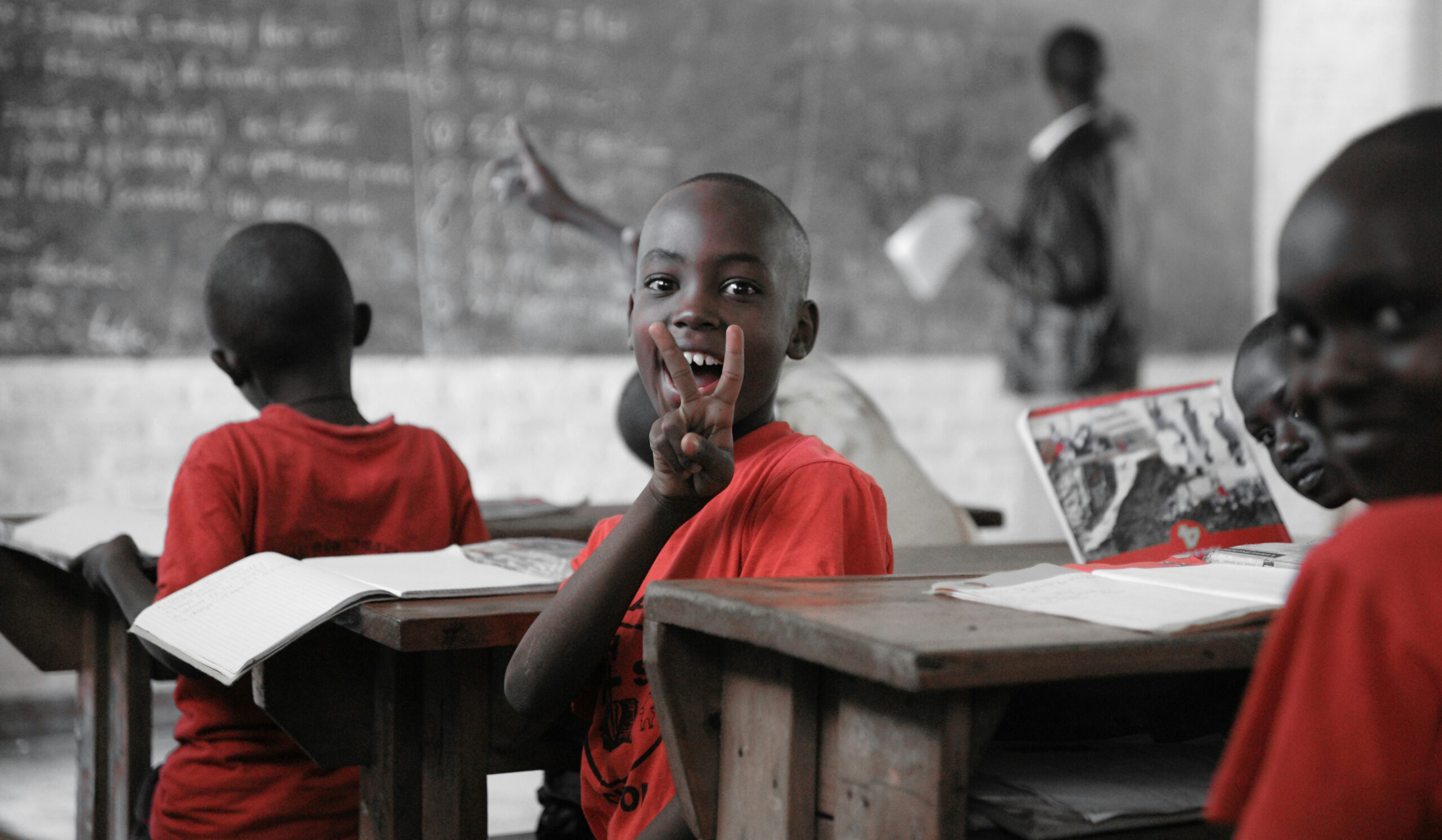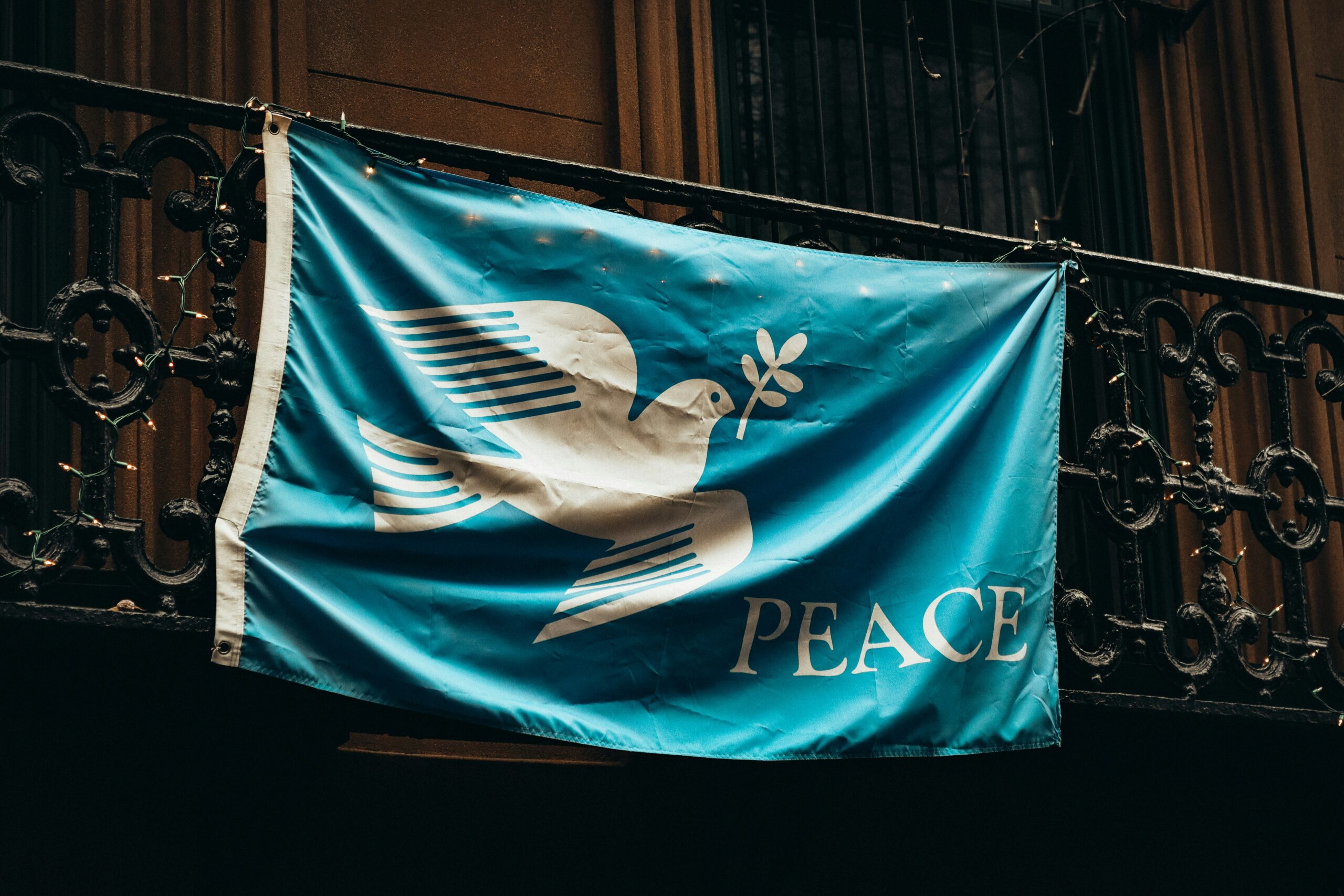CEO Insight: Why Sustainable Development must be Inclusive of all Genders

SDG 5: Gender Equality
Sustainable Development Goal (SDG) 5 emphasises the significance of achieving gender equality by 2030. As we celebrate Pride month in June, it is a time for reflection on the history of the LGBTQIA+ community worldwide. This year, A4ID aims to shed light on the lack of recognition for trans people within SDG 5 and stress the importance of inclusive targets that embrace gender diversity.
The UN’s SDG Agenda is driven by the principle of leaving no one behind. Therefore, the pursuit of gender equality must extend to those who do not identify with their assigned gender at birth and to those who do not conform to the binary understanding of gender (male/female). Excluding trans and gender diverse individuals from the SDGs directly contradicts the core values of the agenda and perpetuates the historical pattern of systemic exclusion and oppression faced by the LGBTQIA+ community.
The Stonewall Uprising and the Significance of Pride
In July 1969, the Stonewall Inn, a popular gay bar, was raided by police, resulting in the arrest of its patrons. In response, the LGBT+ community fought back, sparking a six-day period of collective action and protests demanding the right to live without fear or persecution. One year later, the community sought to commemorate the events of that night. Today, we celebrate Pride month, acknowledging the sacrifices made by the LGBT+ community in their struggle for fundamental human rights.
During the Stonewall Uprising, male patrons dressed as women for the first time refused to undress when confronted by police officers. This defiance, which previously led to arrests for those in drag, marked a turning point. Unfortunately, even after many years, political institutions, law enforcement agencies, and judicial systems worldwide continue to unjustly discriminate against members of the LGBT+ community, particularly trans individuals.
International Legal Frameworks
International Human Rights Law asserts that every individual deserves ‘protection against violence and discrimination based on sexual orientation and gender identity’. Furthermore, the right to have one’s gender identity recognised is rooted in the ‘right to equal recognition before the law’, as established by Article 6 of the Universal Declaration of Human Rights. Despite these principles, trans individuals globally still struggle to obtain official documentation that aligns with their gender identity. In fact, as of 2015, only 11% of trans people in the US possessed identification that matched their gender identity. Lack of recognition by the state impacts an individual’s access to healthcare, housing, social security, freedom of movement, residence, and ‘perpetuates discrimination, violence, and exclusion in various social settings, including education and work environments’.
In some instances, trans people are subjected to forced psychiatric evaluations, unwanted surgeries, or sterilisation, practices enforced by countries such as Japan, several US states, and 18 European countries. These practices not only defy the Yogyakarta Principles, defined by human rights groups on sexual orientation and gender identity, but are also described as state-sanctioned torture. Despite calls from the UN to legally recognise trans individuals’ preferred gender without requiring abusive procedures, many countries still fall short. In fact, we are witnessing a backpedalling on progressive gender policies due to damaging public narratives.
The Sustainable Development Agenda and the Need for Inclusion
While there has been increased public discourse on trans rights in recent years, trans individuals have been fighting for recognition long before the drafting of the SDGs in 2014 and 2015. However, the sustainable development agenda remains silent on addressing the specific structural inequalities faced by gender diverse people. Unlike the more limited definition of development set out in the Millennium Development Goals (MDGs), the SDGs aim to focus on the development of people, planet, prosperity, peace, and partnerships. This inclusivity should encompass all people, regardless of sexual orientation, gender identity, or expression.
However, many countries that are signatories to the SDGs still uphold draconian laws that legitimise the exclusion and persecution of LGBT+ individuals. For instance, Uganda has enacted a law allowing the death penalty or life imprisonment for engaging in or promoting ‘same-sex acts’. Critics argue that by solely focusing on equal rights for women, the UN overlooks the specific barriers faced by gender diverse individuals, thereby preventing them from realising their human rights.
Systemic Discrimination of Trans People and the Path Forward
Opposition to recognising gender diversity is often framed as protecting national identity, traditions, or women’s empowerment. Those who oppose recognising trans people’s gender identity argue that such diversity jeopardises women’s concerns and the integrity of gender-segregated spaces. While these concerns rely heavily on anecdotal evidence, they have spurred a political response resulting in legal measures that limit the social integration of trans individuals.
In the UK, transgender people face discrimination in both policy and public discourse. The severity of the problem was highlighted when a British transgender woman was granted asylum in New Zealand in 2017 based on her gender identity. The landmark case recognised the ‘unduly harsh’ treatment she would face if forced to return to the UK after enduring years of persecution. Unfortunately, this resolution is not available to everyone, and as a result of what has been described as an ‘epidemic of violence against trans people’, nearly half (48%) of trans individuals under 26 in the UK have attempted suicide.
Concerning trends also emerge regarding the detention and imprisonment of trans individuals globally. In the UK, 90% of trans women in prison are housed in men’s prisons. In February this year, the UK government passed a law to ensure that no transgender women with ‘biologically male genitalia’ will be held in women’s prisons. The rationale for this decision has been based upon few instances of transgender women abusing other prisoners, however this is not a basis for such generalised discrimination. This law encourages invasive validation of an individual’s gender, reminiscent of the struggles faced during the Stonewall era. Furthermore, it invalidates an individual’s right to self-determination, which directly contradicts the principles of freedom and autonomy.
Reports from US prisons reveal that transgender prisoners are more likely to face solitary confinement, torture, ill-treatment, and sexual abuse, particularly in immigration facilities. Moreover, laws criminalising sex work disproportionately affect trans people, exacerbating police abuse and involving them in the criminal justice system.
In a clear violation of the Mandela Rules, a trans prisoner in Egypt was held in underground detention without natural light or outdoor activity for eight months. Additionally, despite being medically qualified for gender-affirming treatment, the individual was denied hormone therapy and subjected to a full physical examination without a prosecutorial order.
Policy and Legal Recommendations
Without adequate legal advocacy, trans people will continue to endure brutal conditions. More countries should follow the lead of Australia, Bangladesh, Canada, India, Nepal, New Zealand, and Pakistan by officially recognising genders other than male and female. Advocacy for legislative changes that reflect gender diversity lays the foundation for more inclusive legal and administrative systems that cater to the entire population.
Furthermore, around the world lawyers must advocate for: easier access to official documentation based upon self-determination of gender; the ending of invasive practices; the protection of the right to self-determination; and improved access to fundamental rights and necessities for trans people. Enacting hate crime laws that establish transphobia as an aggravating factor, would also help curtail anti gender diversity narratives and reduce the amount of hate experienced by trans people on a daily basis.
Lastly, A4ID calls on the UN to promote the safety of trans individuals by recognising their rights in the SDG 5 Gender Equality targets. Currently, none of the targets or indicators explicitly address the inequalities faced by gender diverse or trans people. Organisations like the Swedish NGO RFSL have outlined detailed recommendations on how LGBTQIA+ people can be included in the existing SDGs, including SDG 5, to ensure their human rights are fulfilled. Many experts have also provided detailed recommendations on how the international community can effectively include this community in the sustainable development agenda. It is essential to incorporate targets that address the struggles faced by the trans community and work towards ending their persecution in order to achieve gender equality by 2030.

